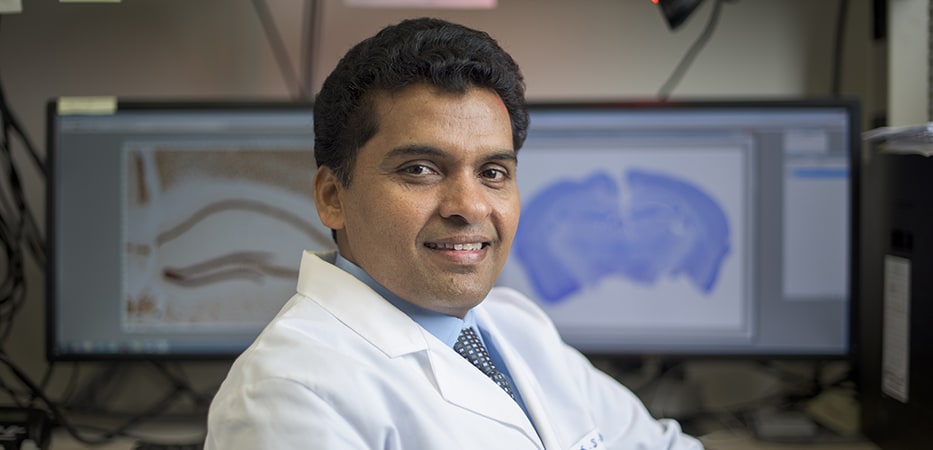Three College of Medicine research teams win seedling grants
The Texas A&M University Health Science Center (Texas A&M Health) has recently awarded seedling grants to three research teams from the Texas A&M University College of Medicine.
The purpose of the year-long grant is to encourage the development of novel, high-impact research projects that have the potential to become externally funded research programs.
“We are so excited to offer this seedling grant opportunity to our College of Medicine faculty who are working on promising research initiatives,” said Hubert Amrein, PhD, senior associate dean of research at the College of Medicine. “These researchers have the amazing opportunity to progress their research that can have significant outcomes improving human life.”
The three research proposals that College of Medicine faculty will be working include:
Immune system research
Robert Watson, PhD, MPH, assistant professor in the Department of Microbial Pathogenesis and Immunology; Kristin Patrick, PhD, assistant professor in the Department of Microbial Pathogenesis and Immunology; Jason Karpac, PhD, associate professor in the Department of Molecular and Cellular Medicine.
The goal of this research is to understand why and how the mutations in a mitochondria-associated protein gene called LRRK2 (leucine-rich repeat kinase 2) impact the body’s ability to fight off infection. The team hopes to further leverage their research to find or create a therapeutic that will inhibit the activity of LRRK2 to ultimately improve infection and inflammatory outcomes.
Vascular dementia research
Farida Sohrabji, PhD, FAHA, regents professor and department chair for the Department of Neuroscience and Experimental Therapeutics
An estimated 5.8 million people in the United States suffer from Alzheimer’s Disease and Related Dementias (ADRD). The risk for dementia doubles for individuals who suffer from strokes, and about 1 in 4 individuals with stroke will develop dementia. Thus, effective stroke therapies may help reduce the risk of developing dementia. This research project aims to determine if repairing the gut after stroke will reduce inflammation and improve brain function, which could lead to reducing the incidence of stroke-related dementia.
Metabolism research
Raquel Sitcheran, PhD, associate professor in the Department of Molecular and Cellular Medicine; Tetsuya Miyamoto, PhD, research assistant professor in the Department of Molecular and Cellular Medicine; Hubert Amrein, PhD, senior associate dean of research and professor in the Department of Molecular and Cellular Medicine.
The goal of this collaborative research proposal is to harness complementary approaches in animal models to investigate the unexplored roles of a glucose enzyme—glucose-6-phosphatase (G6PC3)—in neuronal signaling. The team aims to seek new insights into how G6PC3 may be used as a therapy to treat brain cancer and other diseases with metabolic dysfunction.
Media contact: media@tamu.edu


